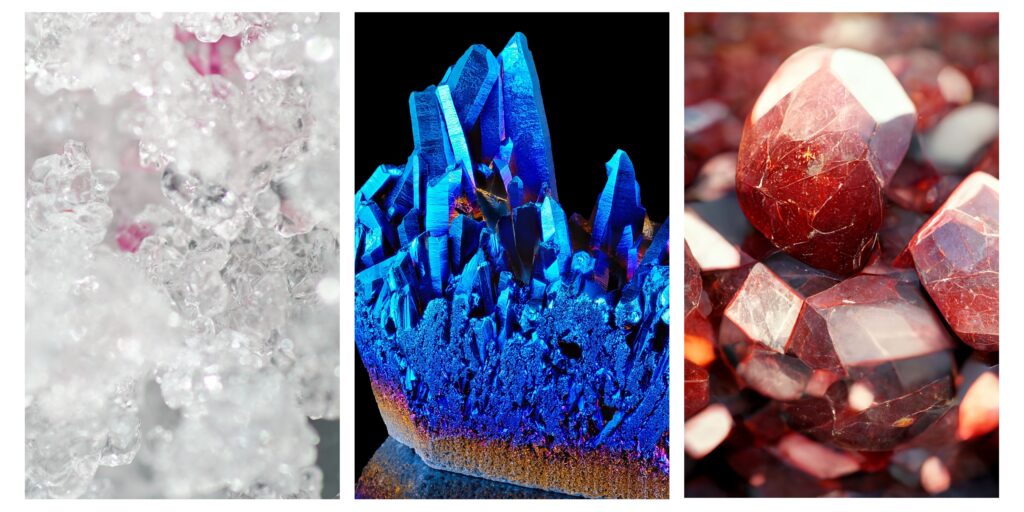While the philosophy of homeopathic practice remains consistent with the original philosophy of its founder, Dr. Samuel Hahnemann, the level of sophistication of our practice has changed dramatically since we became students in the early 1970s. We credit much of this quantum-level advance to our teacher, Dr. Rajan Sankaran, of Mumbai, India. We were extremely fortunate to be among the first handful of westerners to study intensively with him in 1993, and he has been our inspiration ever since that time. We are classical homeopaths, which means that we use one medicine at a time to treat the whole person.
 What has most revolutionized, expanded, deepened, and brought to life our understanding and practice of homeopathy is called the Sensation Method. It is based on the idea is that there is one particular sensation, which is experienced at the level of all of the senses and runs, like a thread, through all of an individual’s symptoms. Rather than asking a laundry list of symptoms, as we did thirty years ago, and then finding the one best medicine to cover all of those symptoms, the technique now is very different and, in many ways, much simpler. We focus on the chief complaint of the patient on the level of sensation or experience. During the interview, or case taking, we will take a journey with you, which will lead us to a particular sensation that runs through all of your symptoms.
What has most revolutionized, expanded, deepened, and brought to life our understanding and practice of homeopathy is called the Sensation Method. It is based on the idea is that there is one particular sensation, which is experienced at the level of all of the senses and runs, like a thread, through all of an individual’s symptoms. Rather than asking a laundry list of symptoms, as we did thirty years ago, and then finding the one best medicine to cover all of those symptoms, the technique now is very different and, in many ways, much simpler. We focus on the chief complaint of the patient on the level of sensation or experience. During the interview, or case taking, we will take a journey with you, which will lead us to a particular sensation that runs through all of your symptoms.
Then we take the next step, which is to understand whether you need a homeopathic medicine from the animal, mineral, or plant kingdom. Next, we narrow down the field further by identifying the family of mineral, plant, or animal. We also investigate how deeply your particular symptoms affect your health and life. Using this information, we choose the one best medicine for you. You can appreciate why this process is an art, since we are choosing from several thousand known homeopathic medicines. This is not just a theoretical science. The substance that you need, once it is given, will bring about healing and balance.
What first comes to mind when you consider the animal kingdom? Think Discovery Channel! The dynamics are quite intense: survival of the fittest, competition and conflict, dominance and aggression, sex, predator and prey.
- You are likely to be intense, engaging, and an entertaining storyteller.
- You can be competitive and very concerned with your place in the pack.
- You may be sexy, seductive, and, depending on which homeopathic animal medicine you need, wear provocative clothing or jewelry with colorful, or animal, designs.
- You may struggle with an inner conflict between your higher and lower, animal versus human, natures in your day-to-day life.
The more specific characteristics depend on the animal sub-kingdom and species. If you need a mammal medicine, which range from lion to horse to dolphin, you may have issues of nurturing and nourishment, belonging to the pack or herd, conflicts of domestication versus wild (dogs, cats, mice, and rabbits etc.). If your sensation corresponds to an insect medicine, you will be restless, hurried, and scurry around busily. If you need a spider medicine, you are agile, love to dance and climb, are captivated by rhythm and bright colors. You may know someone who is cold and heartless, like a scorpion. Or cunning and slithery like a snake or vulnerable and withdrawn like a clam, or other mollusk. You may feel caged and bound, yearning to instead to soar freely if you need a bird medicine. The variety is phenomenal. And once your correct medicine is found, it will bring you into balance on all levels.
The idea of the homeopathic kingdoms is actually very logical. Even if you know nothing about homeopathy, and just think about minerals for a moment, you are likely to come up with words like “solid,” “dense,” or “hard.” If you need a homeopathic medicine from the mineral kingdom, think structure. Just as minerals provide the structure of the earth, they also provide the structure of life. These features will be true of you if you fit into this group:
- You are very concerned with the structural components of your life: home, family, safety, security, and responsibility.
- You have a sense of order, precision, organization, and detail. Being around others who are disorganized and unstructured may drive you crazy.
- You are probably good with numbers and could do very well, like it or not, in a career that is systematic, logical, and structured, like an engineer, accountant, technician, scientist, librarian, doctor, or nurse.
- More specific themes, including nurturance, identity, security, relationships, creativity, and attack and defense will determine which particular mineral medicine is best for you.
There are many hundreds of minerals and mineral salts that are available as homeopathic medicines. Just for starters: gases like hydrogen, helium, oxygen, nitrogen and neon; common minerals like carbon, sodium, sulfur, and chlorine. More unusual ones like strontium, zirconium, and rhodium. Metals including copper, silver, gold, lead, and titanium. Mineral salts, such as table salt or epsom salt. Precious jewels, including diamond and ruby. You can see that the possibilities of which particular mineral you may need are vast, but readily recognized by an experienced homeopath.
Even if you know absolutely nothing about homeopathy, ask yourself which words come to mind when you think of the plant kingdom? Leaf, soft, roots, seed, green, growth, move with the wind, water, sun… Plants need to be flexible and adaptable in order to survive. Plants are rooted in one place. They are sensitive to their environments, and change with the seasons. If you need a homeopathic medicine made from a plant:
- You are sensitive to your environment and to those around you—
physically and emotionally. You may be affected by noise, smoke, and other
environmental disturbances. - You are changeable rather than structured, predictable, and consistent.
- You care more about feelings than about structure and things.
- Your physical symptoms may have be affected by temperature, position, and weather, and other changes in your environment.
There are myriad plants in nature. We base our choice of which plant family to prescribe on the particular sensation of your chief complaint. The Anacardiaceae family, of which poison ivy is a well-known member, has the primary sensation of feeling stiff, stuck, and unable to move. If you need a conifer, like a pine tree, you will feel fragile, brittle, and disconnected. Plants from the lily family are suitable if you feel forced out of your family, job, country. If you consider legumes, with their pods that disperse seeds hither and yon, you will not be surprised that those needing Leguminosae (bean or pea family) medicines will complain of feeling scattered or fragmented. We choose from over 30 plant families to find the medicine for you. The Arnica or Calendula that you may have used to treat yourself for bruises, scrapes, or burns are just two leaves on the tree of possibilities.




